10 Films Based on Crazy Concepts That Actually Worked
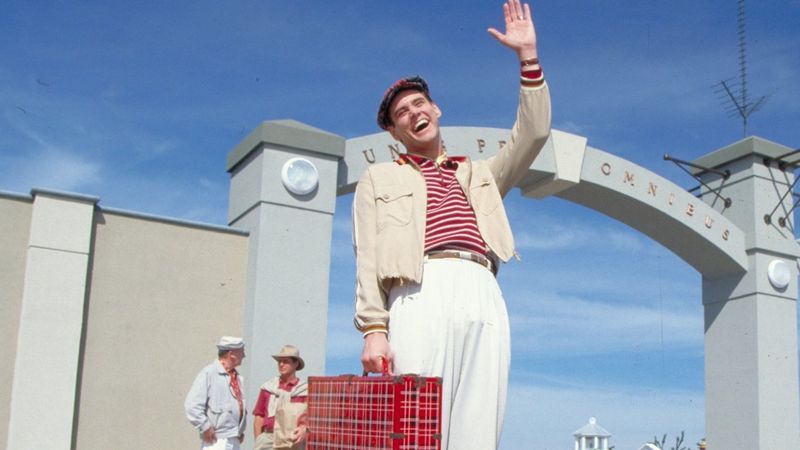
Sometimes the wildest ideas make the best movies. Hollywood has turned some truly bizarre concepts into unforgettable films that audiences adored. From talking pigs to mind-bending dream heists, these ten movies prove that taking creative risks can lead to extraordinary success.
1. Eternal Sunshine of the Spotless Mind (2004)
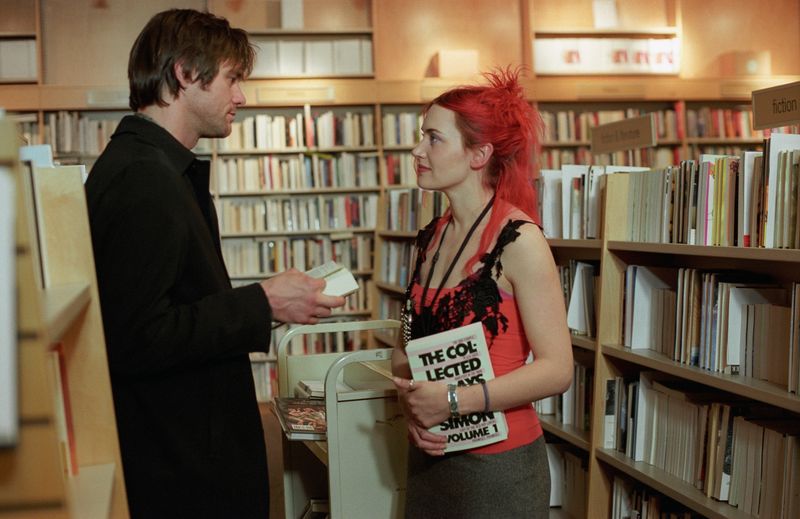
What if you could erase someone from your memory after a painful breakup? That’s the wild premise director Michel Gondry brought to life in this mind-bending romance.
Joel discovers his ex-girlfriend Clementine has undergone a procedure to forget him entirely. Heartbroken and angry, he decides to do the same thing. But as technicians delete his memories while he sleeps, Joel realizes he doesn’t want to lose her after all.
The film brilliantly explores love, loss, and whether forgetting pain is worth losing joy. Charlie Kaufman’s screenplay won an Oscar for its imaginative storytelling. This strange concept created one of cinema’s most touching love stories.
2. Being John Malkovich (1999)
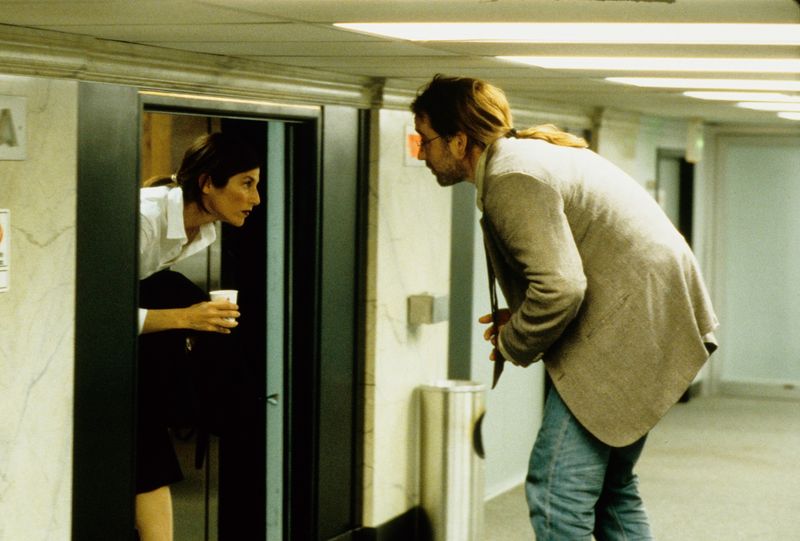
Imagine finding a hidden door at work that leads directly into a famous actor’s brain. That’s exactly what happens in this wonderfully weird film. Charlie Kaufman wrote a script so bizarre that most people thought it would never get made.
Spike Jonze directed this surreal adventure with perfect balance. The movie explores identity, fame, and what it means to be yourself. John Malkovich even plays himself, which adds another layer of strangeness.
Critics loved how the film mixed comedy with deep philosophical questions. Audiences were captivated by the originality and boldness. What could have been a confusing mess became a masterpiece that people still talk about today.
3. Her (2013)
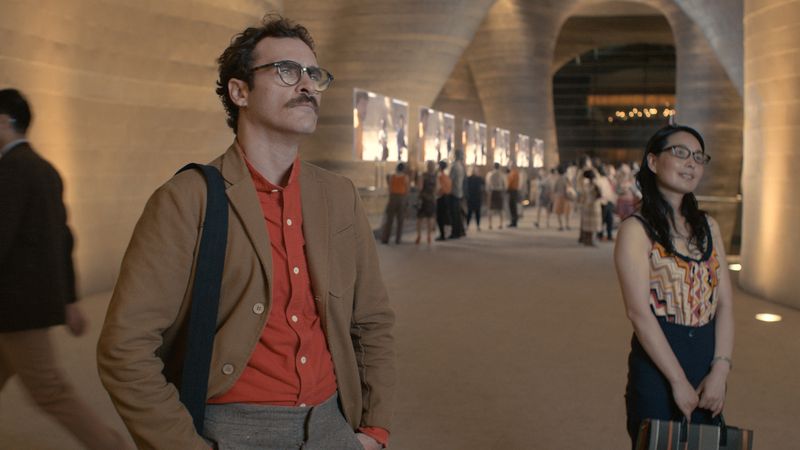
Falling for your computer sounds ridiculous until you watch this film. Joaquin Phoenix plays a heartbroken writer who develops feelings for his artificial intelligence assistant. Scarlett Johansson voices the operating system with warmth and personality that feels incredibly real.
Director Spike Jonze crafted something unexpectedly touching. Rather than focusing on technology, the story examines loneliness and our need for connection. The pastel-colored future looks inviting yet isolating.
What makes this concept work is its emotional honesty. Everyone has felt disconnected or misunderstood at some point. The film asks whether love requires a physical body or just understanding between two souls.
4. Babe (1995)
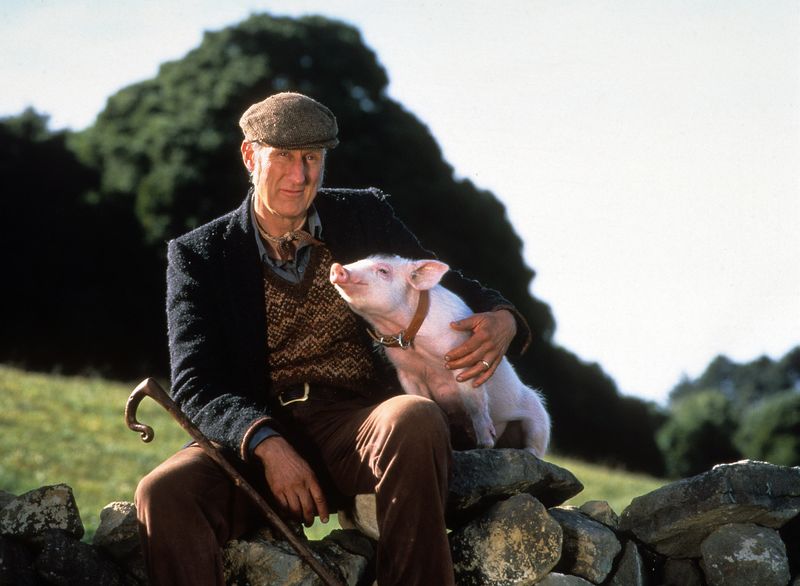
A pig who wants to herd sheep instead of becoming bacon? Sounds like a joke, right? But this charming film turned that silly premise into something genuinely moving. The special effects team made animals talk without looking creepy or fake.
Farmer Hoggett adopts Babe and sees potential where others see dinner. The pig learns sheepherding through politeness and determination rather than barking orders. This simple message about kindness resonated with viewers of all ages.
Hollywood took notice when Babe earned seven Oscar nominations, including Best Picture. The sincerity and heart behind the storytelling elevated it beyond typical children’s entertainment into something truly special.
5. The Truman Show (1998)

Your entire existence is a television program, and everyone you know is an actor. Jim Carrey brings both humor and heartbreak to Truman Burbank, a man trapped in the ultimate reality show. The concept seemed far-fetched in 1998 but feels eerily prophetic now.
Director Peter Weir created a world that looks perfect but feels wrong. Truman slowly realizes inconsistencies in his manufactured paradise. His journey toward truth and freedom becomes deeply moving.
The film predicted our current obsession with surveillance and social media. We constantly broadcast our lives now, sometimes forgetting what’s genuine. This movie asks important questions about privacy, authenticity, and control.
6. Inception (2010)
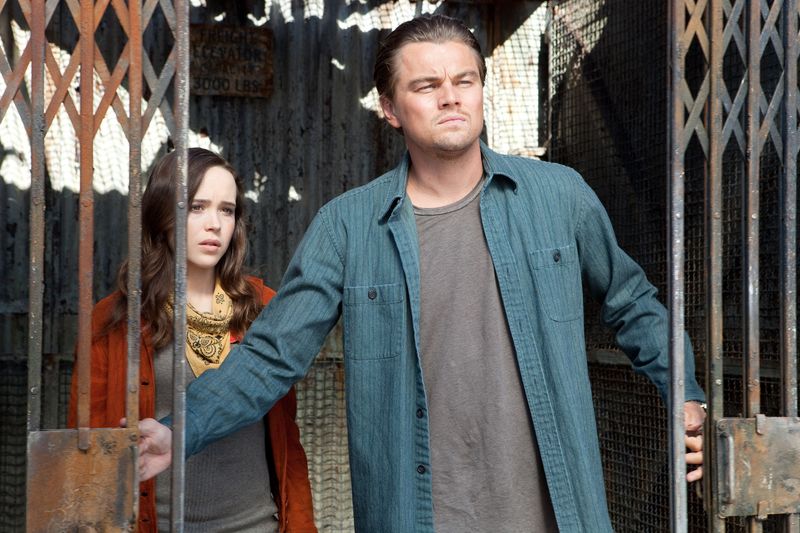
Christopher Nolan asked audiences to follow thieves who steal secrets from people’s dreams. The concept involves dreams within dreams within dreams, which could easily confuse viewers. But Nolan grounds the wild premise in emotional reality.
Leonardo DiCaprio plays Cobb, a man haunted by guilt over his wife’s death. The heist becomes secondary to his personal journey toward forgiveness. Stunning visual effects show cities folding and hallways rotating.
Each dream layer has different rules and time scales, creating puzzle-box storytelling. The ambiguous ending sparked endless debates. By focusing on grief and redemption, Nolan made complex science fiction feel deeply human and accessible.
7. Finding Nemo (2003)
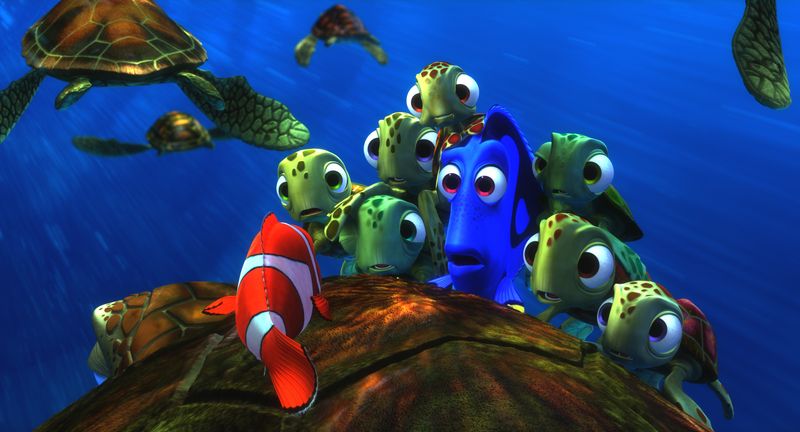
Pixar convinced millions to care deeply about a fish searching for his son. Marlin, an overprotective clownfish, must cross the entire ocean after Nemo gets captured. The journey seems impossible for such a small creature in such a massive world.
Stunning underwater animation brought the ocean to life with breathtaking beauty. Memorable characters like Dory added humor and heart to the adventure. The story explores parental fear and the necessity of letting children grow.
What makes this work is universal emotion wrapped in aquatic packaging. Every parent understands Marlin’s terror and desperate love. The simple concept became a profound tale about courage, trust, and family bonds.
8. Ghostbusters (1984)
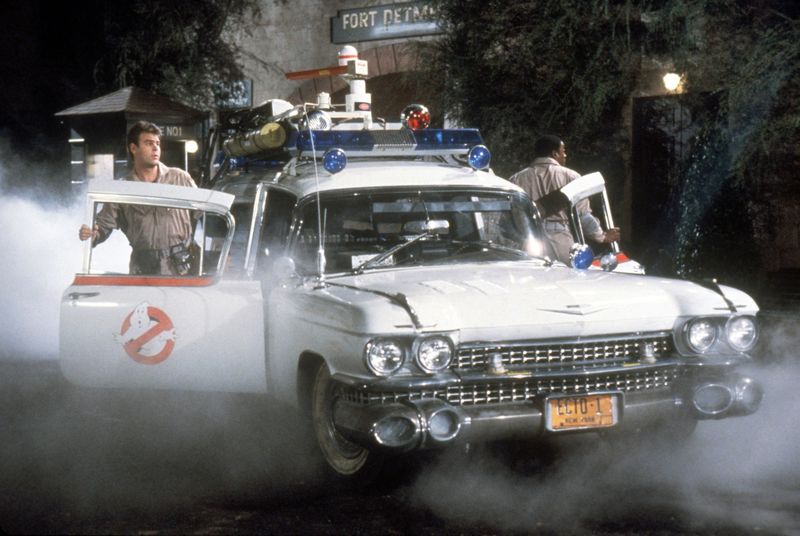
Scientists starting a paranormal extermination business in Manhattan? Director Ivan Reitman blended science fiction with comedy in ways nobody expected. Bill Murray, Dan Aykroyd, Harold Ramis, and Ernie Hudson had perfect chemistry together.
The script treats ghost-catching like actual pest control, which makes the absurdity funnier. Witty dialogue and memorable one-liners made the film endlessly quotable. The Stay Puft Marshmallow Man became an unlikely villain that symbolized childhood nostalgia turned dangerous.
Special effects were groundbreaking for the time, making ghosts look both scary and silly. The theme song became a cultural phenomenon. By playing the ridiculous concept completely straight, the filmmakers created something timelessly entertaining.
9. Get Out (2017)
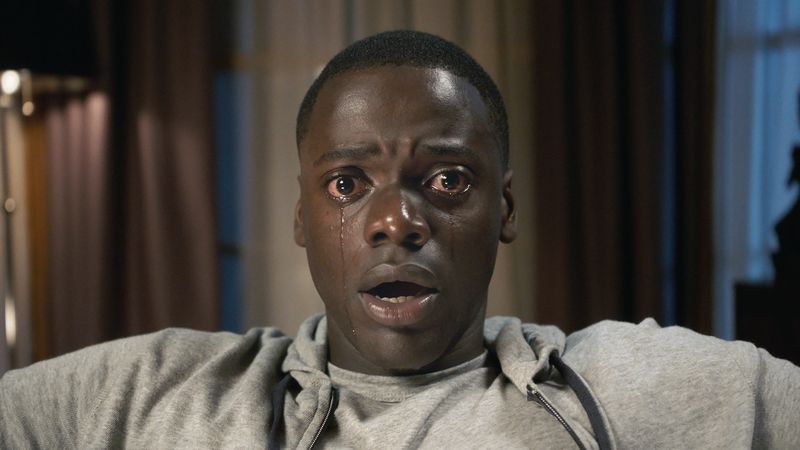
Jordan Peele’s directorial debut took a simple premise and twisted it into social commentary. Chris visits his white girlfriend’s family for the weekend, but something feels terribly wrong. The concept uses horror to explore racism in uncomfortable, brilliant ways.
Peele creates tension through seemingly polite interactions that hide sinister intentions. The “Sunken Place” became a powerful metaphor for silencing marginalized voices. Daniel Kaluuya’s performance captures growing paranoia perfectly.
The film works because it addresses real fears through genre storytelling. Audiences recognized the microaggressions and performative liberalism. By fusing social satire with genuine scares, Peele created a completely new kind of horror that sparked important conversations.
10. Everything Everywhere All at Once (2022)
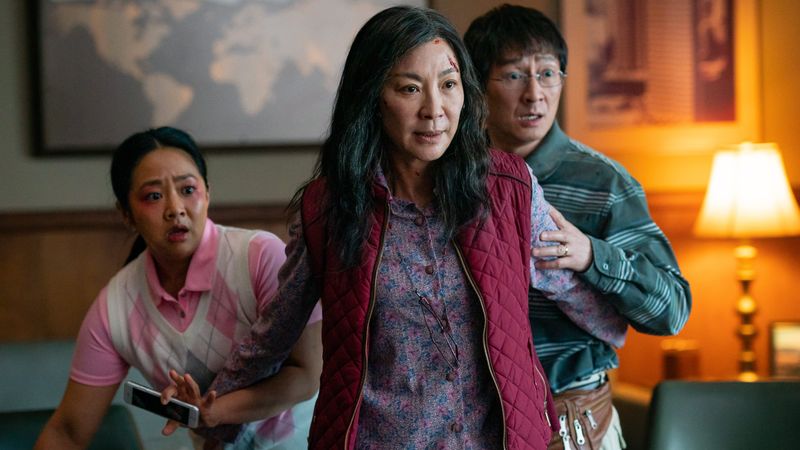
A laundromat owner must save infinite universes while filing taxes? Directors Daniel Kwan and Daniel Scheinert threw every wild idea at the screen. Michelle Yeoh plays Evelyn, an exhausted immigrant struggling with her family and business.
The multiverse concept lets the film explore endless possibilities and identities. Hot dog fingers, raccoon chefs, and rock people with googly eyes create delightful chaos. Yet beneath the absurdity lies genuine emotion about family expectations and finding meaning.
What could have been overwhelming nonsense became the most awarded film ever. Seven Oscars recognized its bold creativity and heart. By grounding multiverse madness in relatable family drama, the film achieved something truly extraordinary.

Comments
Loading…